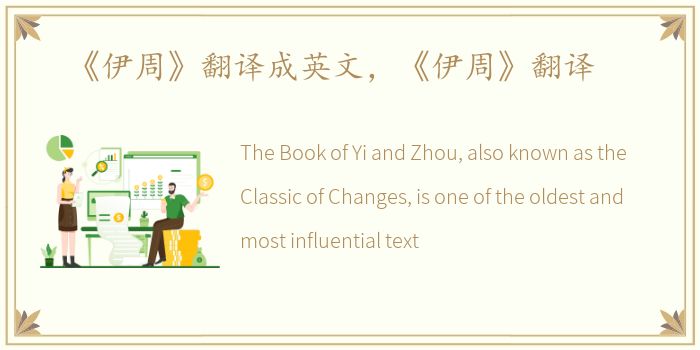《伊周》翻译成英文,《伊周》翻译

The Book of Yi and Zhou, also known as the Classic of Changes, is one of the oldest and most influential texts in Chinese history. It is a divination manual that provides guidance on how to interpret the patterns of yin and yang, the eight trigrams, and the sixty-four hexagrams.
The Book of Yi and Zhou is believed to have been written during the Western Zhou dynasty (1046-771 BCE), but its origins are shrouded in mystery. According to legend, the book was compiled by the mythical sage King Wen and his son Duke of Zhou, who used it to overthrow the tyrannical Shang dynasty and establish the Zhou dynasty.
The book is divided into two parts: the Zhouyi (Changes of Zhou) and the Yijing (Book of Changes). The Zhouyi consists of the eight trigrams, which represent the basic elements of the universe, and their combinations to form the sixty-four hexagrams. Each hexagram has a unique meaning and can be interpreted in different ways depending on the context.
The Yijing is a commentary on the Zhouyi and provides more detailed explanations of the hexagrams and their significance. It also includes instructions on how to use the book for divination, which involves casting yarrow stalks or coins to generate a hexagram that corresponds to a particular question or situation.
The Book of Yi and Zhou has had a profound impact on Chinese culture and philosophy. It has been studied by scholars, philosophers, and mystics for thousands of years and has influenced everything from Confucianism and Taoism to martial arts and feng shui. Its teachings on the cyclical nature of the universe, the balance of yin and yang, and the importance of harmony and balance continue to resonate with people around the world today.
声明:本站所有文章资源内容,如无特殊说明或标注,均为采集网络资源。如若本站内容侵犯了原著者的合法权益,可联系本站删除。










